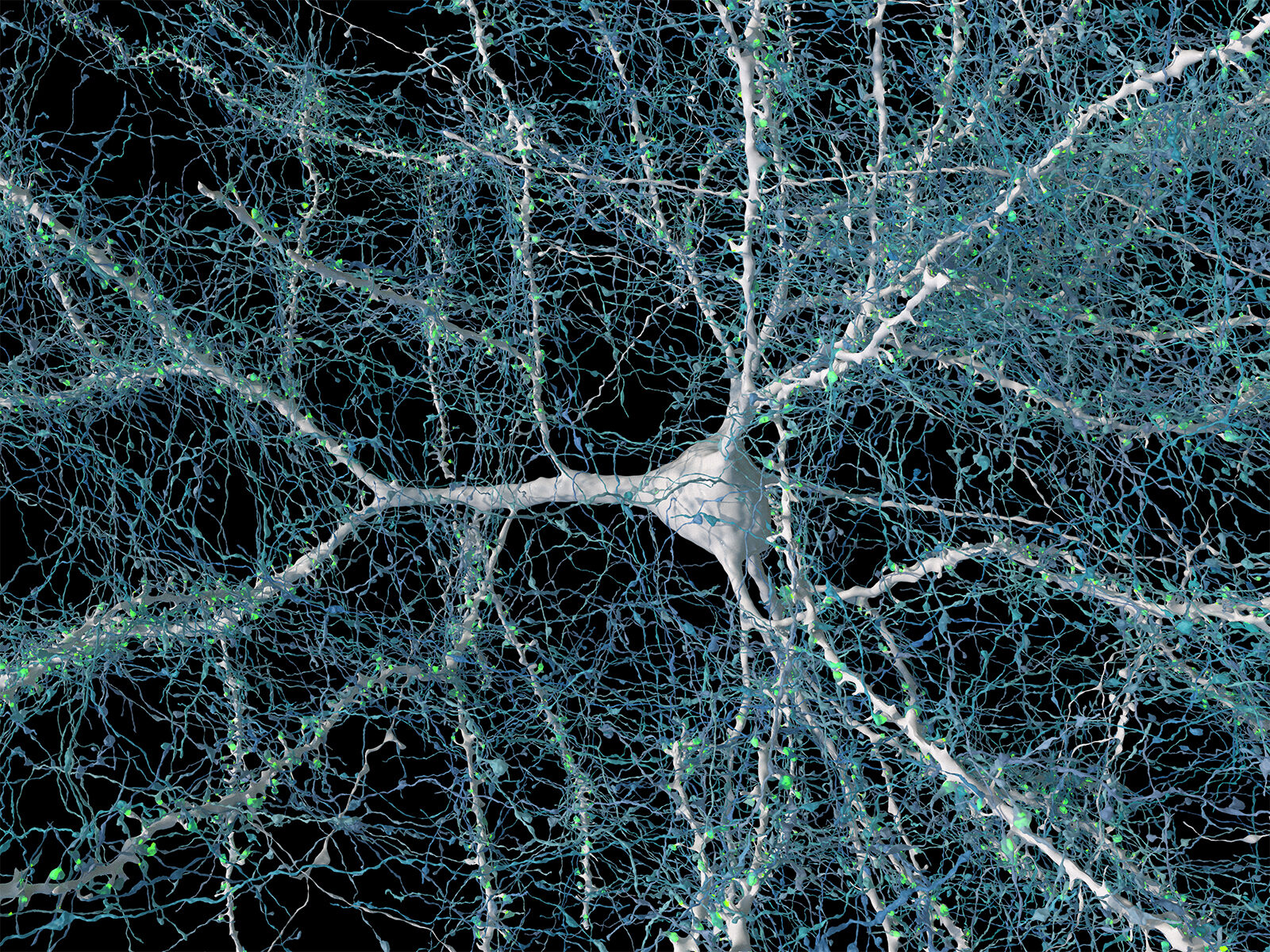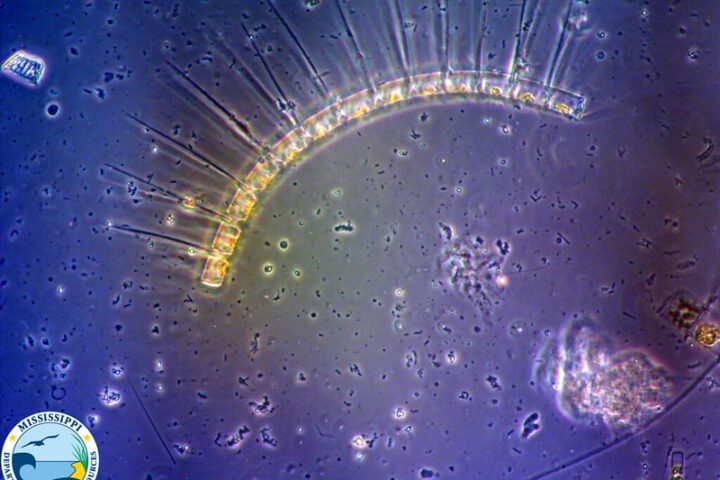Source: https://www.nih.gov/sites/default/files/news-events/research-matters/2024/20240521-synapses.jpg
Neuroscientists have made a groundbreaking discovery that is challenging our fundamental understanding of the human brain. Researchers have identified a previously unknown type of neuron, a cell that doesn’t fit into any existing classification. Found deep within the brain, these enigmatic neurons possess unique electrical properties, hinting at a previously unrecognized role in brain function.
The implications of this discovery are profound. It opens up new avenues for research into neurological disorders, such as Alzheimer’s and Parkinson’s disease, which are characterized by neuronal dysfunction. By understanding the role of these newly identified neurons, scientists may be able to develop novel therapeutic strategies.
Moreover, this breakthrough could reshape our understanding of consciousness and cognition. The brain’s intricate network of neurons is responsible for our thoughts, emotions, and perceptions. The identification of a new type of neuron suggests that the complexity of the human brain may be even greater than previously thought.
As researchers delve deeper into the study of these enigmatic cells, we can anticipate further revelations about the brain’s inner workings. This discovery marks a significant milestone in neuroscience and holds the promise of revolutionizing our understanding of the human mind.
Unraveling the Brain’s Mysteries
Neuroscience, the intricate study of the human brain, has always been a frontier of scientific exploration. Yet, even in this era of advanced technology, the brain continues to baffle scientists with its complexity and capacity. A recent groundbreaking discovery has sent ripples through the scientific community, challenging our fundamental understanding of this enigmatic organ.
Researchers have unveiled a previously unknown type of neuron, a fundamental building block of the nervous system. Unlike the familiar neurons categorized into distinct types, this newly identified cell defies classification. Nestled deep within the brain, it exhibits unique electrical properties and appears to play a pivotal role in information processing.
This discovery is akin to finding a new species in the depths of the ocean. It forces us to reconsider our existing models of brain function and opens up exciting new avenues for research. The implications are far-reaching, with potential applications in treating neurological disorders like Alzheimer’s and Parkinson’s disease. These conditions, characterized by neuronal dysfunction, may find novel therapeutic targets in this newly discovered cell type.
Moreover, this breakthrough sheds light on the intricate workings of the human mind. Consciousness, cognition, and memory are complex phenomena rooted in the intricate network of neurons. The identification of a new type of neuron suggests that the brain’s capacity for information processing and generation might be even more sophisticated than previously thought.
Understanding the role of this newly discovered neuron is crucial for unraveling the mysteries of the brain. By mapping its connections and functions, scientists can gain valuable insights into how the brain processes information, learns, and remembers. This knowledge could revolutionize fields such as artificial intelligence, which seeks to mimic human cognition.
The journey to understanding the brain is far from over. The discovery of this new neuron is just one piece of the puzzle. However, it represents a significant step forward in our quest to unlock the secrets of the human mind. As research progresses, we can anticipate further breakthroughs that will reshape our understanding of ourselves and the world around us.
The Implications for Neuroscience and Medicine
The implications of this groundbreaking discovery extend beyond the realm of basic neuroscience. By understanding the role of this newly identified neuron, researchers can potentially develop targeted therapies for a range of neurological disorders. Conditions such as epilepsy, autism, and schizophrenia, which are believed to arise from abnormal brain activity, may benefit from insights gained through the study of this novel cell type.
Furthermore, the discovery has the potential to inform the development of more effective treatments for traumatic brain injury. Understanding how different types of neurons respond to injury is essential for developing strategies to promote recovery and minimize long-term consequences.
In addition to its impact on neurological disorders, the identification of this new neuron could also have implications for our understanding of cognitive processes. Learning, memory, and decision-making are complex functions that involve intricate interactions between different brain regions. By unraveling the role of this newly discovered neuron, scientists may gain valuable insights into these cognitive processes.
Ultimately, the discovery of this new neuron is a testament to the ongoing exploration of the human brain. As research progresses, we can expect to uncover even more surprises about the complexity and adaptability of this extraordinary organ.
A New Frontier in Neuroscience
The discovery of a previously unknown type of neuron marks a pivotal moment in neuroscience. It is a testament to the enduring complexity of the human brain and the boundless potential for scientific exploration. As researchers delve deeper into the functions of this enigmatic cell, we can anticipate a cascade of new insights and discoveries.
This breakthrough serves as a reminder that even in an era of advanced technology, the human brain remains the ultimate frontier. With each new revelation, we inch closer to unlocking the secrets of consciousness, memory, and intelligence. The journey ahead is undoubtedly challenging, but the potential rewards are immeasurable.
A New Chapter in Neuroscience: Implications and Opportunities
The discovery of a novel neuron type marks a pivotal moment in the annals of neuroscience. This groundbreaking finding challenges our fundamental understanding of brain function and opens up new avenues for research and therapeutic interventions. As scientists delve deeper into the intricacies of this enigmatic cell, the potential for transformative discoveries is immense.
Beyond its implications for neurological disorders, this discovery could reshape our understanding of cognitive processes. Learning, memory, and consciousness are complex phenomena intricately linked to neuronal networks. By elucidating the role of this newly identified neuron, researchers may gain invaluable insights into these fundamental aspects of human cognition.
Moreover, the implications for technological advancements are profound. As we strive to develop artificial intelligence that mirrors human intelligence, a deeper comprehension of the brain’s architecture is essential. Understanding how different neuron types interact and contribute to complex cognitive functions will inform the design of more sophisticated AI systems.
The journey to unraveling the brain’s mysteries is far from over. This recent discovery serves as a powerful reminder of the complexity and wonder of the human mind. As research progresses, we can anticipate a wave of innovations that will not only advance our understanding of the brain but also improve human health and well-being.
Sources:
- https://www.nytimes.com/2023/10/12/science/human-brain-cells-atlas.html#:~:text=Researchers%20identified%20some%203%2C300%20types,what%20most%20of%20them%20do.&text=An%20international%20team%20of%20scientists,finer%20resolution%20than%20ever%20before.
- https://www.nih.gov/news-events/nih-research-matters/study-reveals-unseen-details-human-brain-structure
- https://www.sciencealert.com/two-new-types-of-brain-cell-have-been-discovered-and-it-could-help-us-better-understand-brain-repair
- https://www.sciencedaily.com/releases/2023/10/231012161739.htm

















